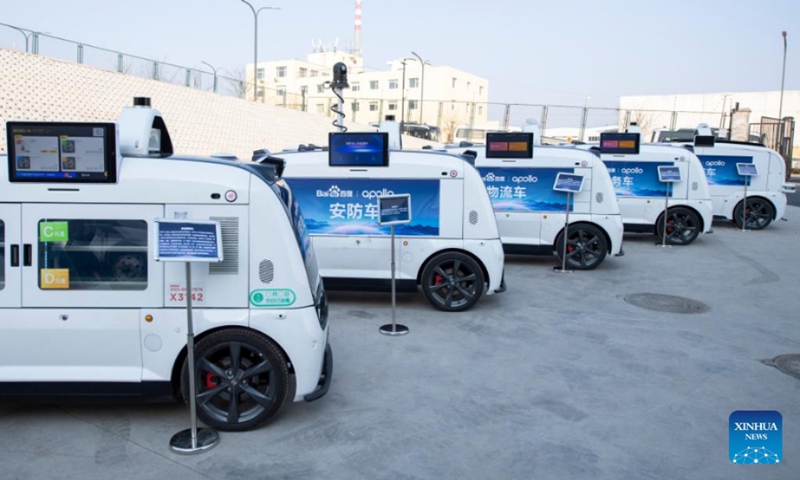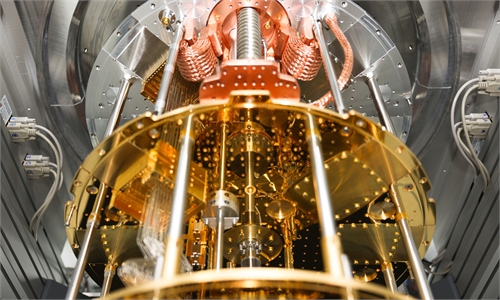Chinese tech giant Baidu to build world’s largest fully driverless ride-hailing service area in 2023

Unmanned vehicles are seen at Apollo Park in Yangquan, north China's Shanxi Province, Feb. 25, 2022. (Xinhua/Yang Chenguang)
Chinese tech giant Baidu Inc announced plans on Tuesday to build the world's largest autonomous ride-hailing service area in 2023. The announcement came during a celebration of Apollo Day, Baidu's autonomous driving tech event.
The plan outlined a goal to expand the operation area for Baidu's fully driverless robotaxis, allowing it to reach more potential customers. Additionally, the company revealed a series of new technology breakthroughs including an AI big model built for autonomous driving perception, high-definition autonomous driving maps, a closed-loop autonomous driving data system, and the successful end-to-end adaptation of AI chips for autonomous vehicles.
Chen Jingkai, Baidu's autonomous driving technology expert, said the generalization ability of its autonomous driving technology has progressed at a more advanced pace than expected. Now, the lead time to deploy autonomous driving technology in a new city is only 20 days.
Fellow tech giant Tencent said on Monday that it will provide support for the large-scale data storage, computing and model training needed to take NIO's autonomous driving technology from research and development (R&D) to operation.
Tencent Cloud will support the large-scale data storage, computing and model training required for NIO's autonomous driving from R&D to operation, according to the release sent to the Global Times.
Last week, Baidu and Pony.ai were granted permission by the Beijing municipal government to open the unmanned test qualification of autonomous driving with "no one in the front row and people in the back row." The industry believes that this is the transitional stage of advancing the Robotaxi industry toward "no one in the car."
In October, Volkswagen announced that its software unit Cariad will establish a joint venture with Chinese technology firm Horizon Robotics, as the German car giant aims to accelerate its introduction of automatic driving customized solutions and strengthen its tech presence in China, its biggest market.
China's driverless ride-hailing industry has witnessed a bunch of latest improvement in recent days. The raft of announcements is further evidence that China's autonomous driving enter has entered the "fast lane" with commercial operations becoming increasing mature, thanks to continuous technology innovation and policy support.
In a latest released financial report of the third quarter alone, Apollo Go has completed more than 474,000 rides, up 311 percent year on year, and a 65 percent increase compared to last quarter. In first-tier cities like Beijing and Shanghai, each robotaxi on Apollo Go can provide 15 rides a day on average, nearly the same daily ride average of typical online ride-hailing car services.
By the end of Q3 2022, the accumulated rides provided to the public by Apollo Go had reached 1.4 million.
Market industry attributed the growth to the fact that many cities are actively carrying out road tests of unmanned driving, making those car brands more willing to have tech innovation on autonomous driving.
On November 2, China's Ministry of Industry and Information Technology issued a draft guideline to expand tests and applications for intelligent connected vehicles in China.
The draft, which is soliciting public feedback until December 1, outlined that the ministries will conduct access management for Level 3 (conditional autonomous driving) and Level-4 (highly autonomous driving) driving vehicles and start pilot work.
With the continuous improvement of relevant regulations and continuous expansion of autonomous driving test areas, analysts said that the pace of mass production of L4 autonomous driving will also accelerate.
Global Times


